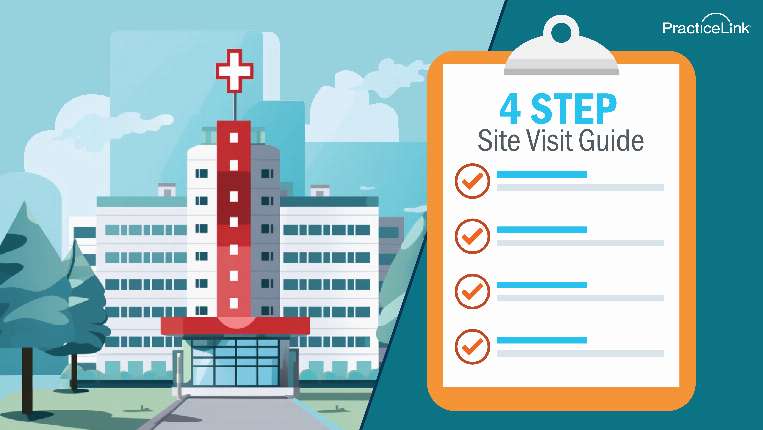4 steps on how to guide physicians through site visits
 Posted by Jackie Farley
Posted by Jackie Farley

You may have reached the point in your candidate search where you are ready to invite your top contenders for on-site visits. Before you send out invitations, spend time organizing a plan and follow these steps when guiding physicians through site visits:
Step one: Define their main element
Try to determine what the most important element is for each candidate who is looking for a new job: What is going to be their deciding factor? Is it all about location? Are they hoping to relocate closer to family and friends? Or are they more concerned about working in a specific area of medicine than a specific area of the country? If that’s the case, their main priority is specialty. Or, perhaps finding a job with a good work/life balance is their biggest consideration.
Once you determine what a candidate is looking for in a job, you will need to consider how this syncs up with what your organization can offer.
Step two: Decide on a ’short list’
Once you’ve read through cover letters and CVs and spoken to qualified candidates online, it’s time to decide if they’re merely qualified or a real contender for the position.
Aside from the expense of transportation and lodging, it can be stressful and tiring for a resident or fellow to take time off. So, you may want to narrow down your options, especially if travel is involved.
Make sure the candidate is a strong possibility for the position before you waste their time and your organization’s money.
Step three: Help them with their homework
Try to cover some key areas in your communications with candidates online and over the phone, so they already have an idea about things like group size, call sharing, administrative duties and management structure.
By the end of the second interview, compensation should have been addressed as well, which can often be a deciding factor.
According to Robert Dolansky, D.O., MBA, family medicine physician and chief of urgent care and occupational medicine at St. Luke’s University Health Network in Allentown, Pennsylvania, "By the time you are asked to visit, you should already have had both a phone interview with a recruiter and some type of video interview. Salary and compensation typically should be brought up by the end of the second one."
If not, he recommends asking for at least a general idea before planning the site visit. "If it’s not in the range that you know you need, there’s no sense proceeding."
If there appear to be red flags in any of these areas in the first or second interview, a site visit may not be beneficial for you or the candidate.
Also, make sure potential candidates know as much about the job as possible. Avoid being Willy Wonka - in other words, don’t sugar coat what you are looking for. Be upfront about your organization’s needs and expectations.
Newton Wiggins, M.D., a cardiologist with The Chattanooga Heart Institute at Memorial in Tennessee and chair-elect of the Early Career Professional Council of the American College of Cardiology encourages candidates to do their homework. He says, "I think the number-one thing you want to understand is the job expectations. What is the employer looking for? And is that something you’re interested in doing?"
Talk to the candidate and consider what assets they can bring to the organization and ask them about any special skills they may have to offer. If and when you decide to bring them in for a site visit, let them know who they will be meeting with and what that person’s responsibilities are so that they can ask informed questions.
Step four: Be prepared to answer questions, too
While you are busy assessing your potential employees in your organization’s environment during their visit, be prepared to be asked some questions, too.
This is the candidate’s opportunity to inquire about details such as equipment, resources, clinic operations, workflow, support staff, educational materials, CMA scheduling and the EMR system. They may ask about open and recently vacated positions because it could be a potential indicator of hidden issues.
Be aware that they will be observing the interactions between the staff to see if they can get a sense of the work culture. They will want to learn as much as they can so they have a good idea about the ins and outs of the job.
Keep in mind, at the end of their site visit, some of the most important questions asked may be the ones the candidate asks themselves. Do your employees seem comfortable with one another? Do they seem stressed or relaxed? How does everyone work together as a team? And, possibly the most important question of all: Is this organization a place where they can thrive?
The most important thing is that these answers align.

